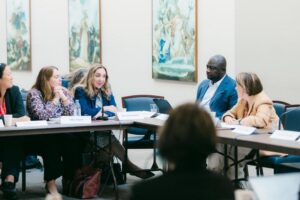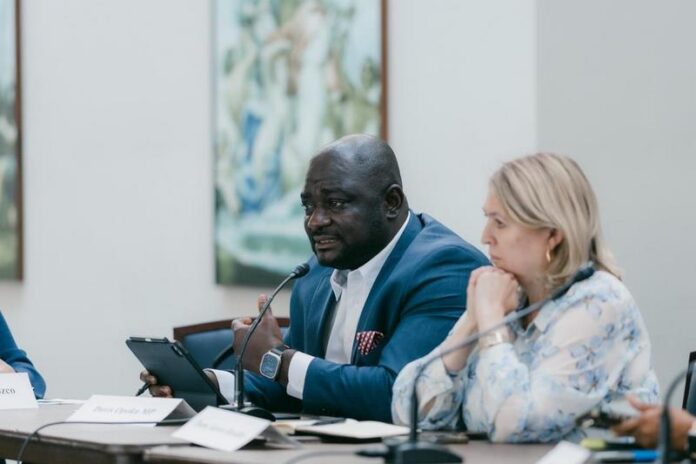Ghanaian Member of Parliament Davis Ansah Opoku has called for urgent international action to end child trafficking in Africa’s mining sector.
Speaking at the Anti-Trafficking in Persons (ATIP) Global Policy Summit in Washington, D.C., the Mpraeso MP highlighted Ghana’s pioneering strategy to combat galamsey — illegal small-scale gold mining — which has become closely linked with child exploitation across West Africa.
Central to his presentation was the establishment of the Ghana Gold Board (GoldBod), a regulatory authority tasked with centralising licensing, regulating trade, and introducing full traceability of gold entering international markets.
Drawing parallels with Ghana’s cocoa reforms, Mr. Opoku told lawmakers: “If you cannot trace the source, you cannot guarantee dignity in the supply chain.”
He outlined a five-pillar framework focused on criminalising the purchase of trafficked labour, strengthening child welfare protections, regulating public procurement, ensuring safe labour migration, and enforcing accountability through technology and finance.
Mr. Opoku emphasised the urgency of the crisis with statistics from the International Labour Organisation, noting that 72 million children across Africa are trapped in child labour, with more than 31 million engaged in hazardous work.

Thousands of Ghanaian children between the ages of 10 and 17 are estimated to work in galamsey sites, facing mercury exposure, dangerous conditions, and exploitation by trafficking networks.
“The Ghanaian child in a galamsey pit is no different from the Congolese child in a cobalt mine,” he said, highlighting the continental scale of the challenge.
Addressing US legislators, international parliamentarians, and survivor advocates, the Ghanaian MP stressed that regulation alone would not suffice. He urged substantial investment in vulnerable communities through education, vocational training, cash transfers, and local protection committees led by traditional leaders and youth organisations.
Concluding his address, Mr. Opoku issued a challenge to global leaders and businesses: “The time for half measures has ended. The time for bold African action is now.”
Source: Ernest Arhinful
ALSO


